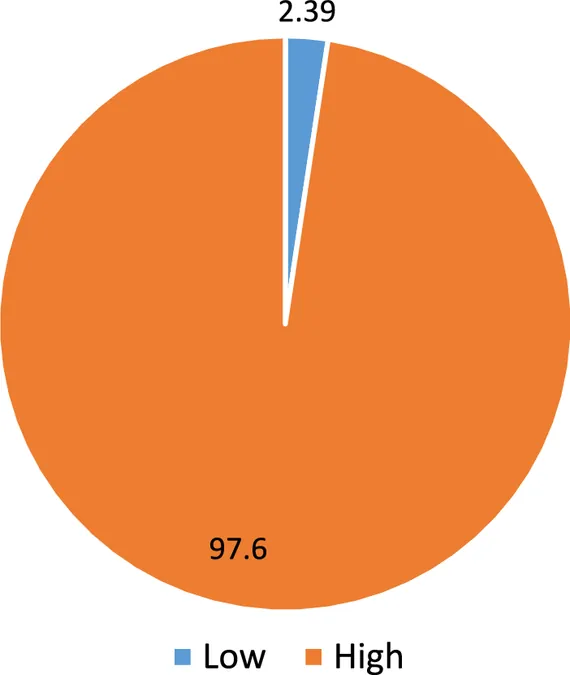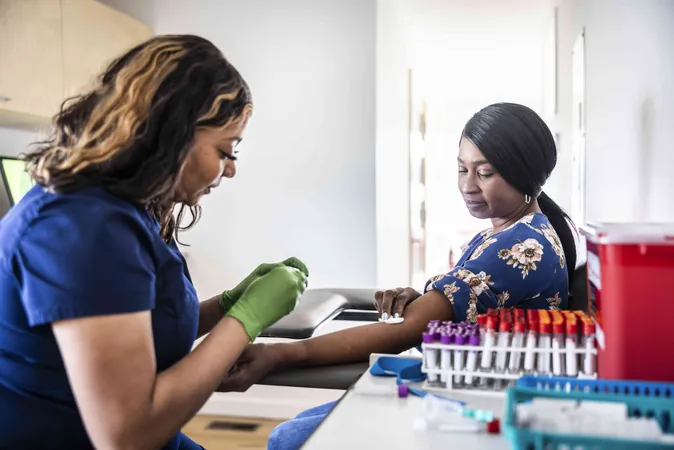
Alarming Findings: Overwhelming Malaria Prevalence in Pregnant Women in Ghana’s Ashanti Region – Are We Missing the Mark?
2025-01-11
Author: Li
Introduction
Malaria is more than just a disease; it's a testament to the ongoing struggles against poverty, particularly in vulnerable populations such as pregnant women. They face severe health risks from malaria that can result in complications like low birth weight and neonatal deaths. A recent comprehensive study in the Ashanti Region of Ghana sheds light on the shocking prevalence of malaria among expectant mothers attending antenatal care (ANC) clinics, revealing critical socio-economic and cultural factors impacting this public health crisis.
Study Overview
In this cross-sectional study involving over 1200 pregnant women across three districts in the Ashanti Region, extensive data collection analyzed the prevalence and associated risks of malaria during pregnancy. Researchers employed statistical methods to assess the relationship between individual characteristics and malaria incidence.
Key Findings
The results were startling: approximately 76.7% of participants reported having experienced at least one episode of malaria during their pregnancies. The significantly elevated risks were linked to numerous socio-demographic factors:
Age
Mothers aged 17-25 were found to be **10.26 times** more likely to suffer from malaria than older age groups, highlighting the vulnerability of younger pregnant women.
Education
Illiterate mothers had an alarming **15.10 times** higher likelihood of malaria infection compared to those with higher education qualifications. This underscores the importance of health literacy in disease prevention.
Insecticide-Treated Nets
Lack of access to or use of ITNs increased malaria risk **20-fold**, illustrating the critical role of preventive measures in combating malaria. Shockingly, over half (55.2%) of women surveyed did not regularly use these nets.
Socioeconomic Status
Factors such as marital status, religious beliefs, and household income further intensified the risk, with unmarried women being **3.17 times** more vulnerable compared to their married counterparts.
The Bigger Picture
Despite notable public health initiatives in Ghana aimed at combating malaria, such as the distribution of ITNs and implementing Intermittent Preventive Treatment (IPTp), the high prevalence rates expose substantial gaps in coverage and support. In areas like the Ashanti Region, where significant socio-economic challenges persist, pregnant women face barriers to accessing effective healthcare and educational resources about malaria risks and prevention strategies.
Globally, malaria claims over 1 million lives annually, with sub-Saharan Africa bearing the heaviest burden. The findings reiterate that targeted interventions are crucial to reduce maternal risks. Notably, in 2022 alone, there were 249 million malaria cases globally, with Africa accounting for an astounding 94% of cases.
Call to Action
To align with the United Nations Sustainable Development Goals (SDGs), particularly Target 3.1 focused on reducing maternal mortality and Target 3.3 aimed at eliminating malaria, health authorities in Ghana, including the Ghana Health Service and the Ministry of Health, must prioritize enhanced distribution of ITNs, comprehensive educational campaigns on malaria prevention, and tailored support for at-risk groups. Engaging communities, particularly around preventive behaviors and health-seeking practices, forms a crucial part of this strategy.
Furthermore, this research highlights the necessity for continuous investment in research to address the unique determinants of malaria risk in pregnant women across different Ghanaian districts. Understanding the socio-cultural context is essential to crafting effective interventions that resonate with community realities.
Conclusion
The alarming malaria prevalence among pregnant women in the Ashanti Region is a wake-up call. With clear associations between socio-demographic factors, healthcare access, and malaria risk, it’s crucial that stakeholders act decisively. Revitalizing public health strategies and promoting knowledge about malaria prevention are essential steps towards protecting the health of mothers and their babies, making strides in the fight against this preventable disease. The future of maternal health in Ghana depends on it.




 Brasil (PT)
Brasil (PT)
 Canada (EN)
Canada (EN)
 Chile (ES)
Chile (ES)
 Česko (CS)
Česko (CS)
 대한민국 (KO)
대한민국 (KO)
 España (ES)
España (ES)
 France (FR)
France (FR)
 Hong Kong (EN)
Hong Kong (EN)
 Italia (IT)
Italia (IT)
 日本 (JA)
日本 (JA)
 Magyarország (HU)
Magyarország (HU)
 Norge (NO)
Norge (NO)
 Polska (PL)
Polska (PL)
 Schweiz (DE)
Schweiz (DE)
 Singapore (EN)
Singapore (EN)
 Sverige (SV)
Sverige (SV)
 Suomi (FI)
Suomi (FI)
 Türkiye (TR)
Türkiye (TR)
 الإمارات العربية المتحدة (AR)
الإمارات العربية المتحدة (AR)